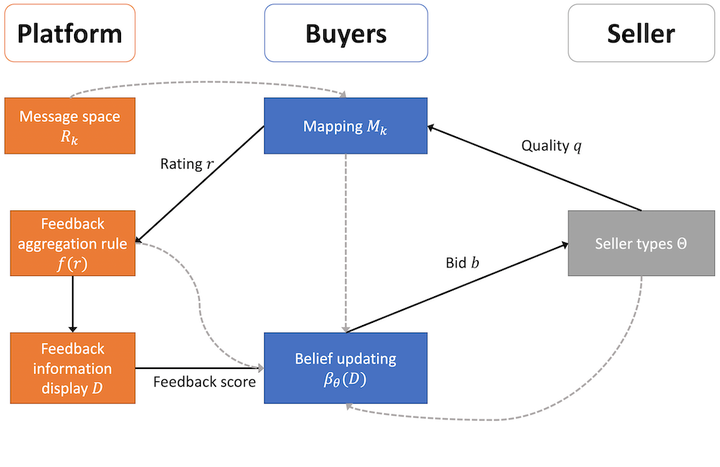 Model of interactions between platform, buyers, and sellers. The solid straight lines denote inputs to the functions, while the rounded dashed lines represent that one item affects the functional form of another.
Model of interactions between platform, buyers, and sellers. The solid straight lines denote inputs to the functions, while the rounded dashed lines represent that one item affects the functional form of another.
Abstract
Reputation feedback systems assign feedback scores to traders with the aim of separating them according to reliability. There is now a substantial amount of literature on what these mechanisms do well and not so well. Conspicuously absent is a theoretical framework to guide thinking on improving these systems. Here we construct a prototype market, stylized and conceptual in nature, but also suitable for laboratory testing. We use the prototype to examine competing approaches to eliciting feedback from traders. Using entropy to benchmark informativeness, we show that the informativeness of feedback elicitation approaches depends on the ability to solve a coordination problem such that traders use a common mapping to turn experiences into ratings. In theory, different approaches can be about equally informative although the map to coordinate on is more ambiguous in some cases. We then test the approaches in the laboratory. The resulting data find that the most informative feedback is associated with the elicitation methods where the solution to the coordination problem is least ambiguous.